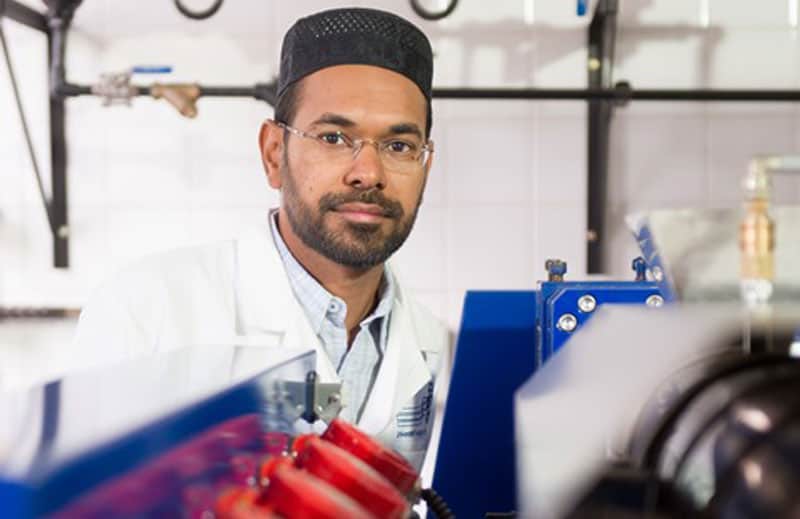Time: 18:00-19:00
Venue: Virtual
Inaugural Address: Professor Mohammad Naushad Emmambux
This event has been rescheduled for 7 September 2021. It was initially meant to take place on 30 June.
The Dean of the Faculty of Natural and Agricultural Sciences, Prof Barend Erasmus, cordially invites you to the virtual inaugural address of:
Professor Mohammad Naushad Emmambux, Department of Consumer and Food Sciences
Date: 7 September 2021
Time: 18:00 – 19:00
Venue: Virtual
RSVP Click on link to register: here
Enquiries For more information please contact:
Ms Johanna Malaji
at johannad.malatji@up.ac.za

Prof Naushad Emmambux believes that SMART foods could help lead to a healthier South Africa.
ABSTRACT: Technological innovation for food- and nutrition security, and sustainability: A food biopolymer perspective
Child malnutrition and diet-related non-communicable diseases, such as type 2 diabetes and cardiovascular diseases associated with obesity, are among the wicked problems related to food- and nutrition security.
Overconsumption of energy-dense foods characterized by high sugar, refined carbohydrates rich in rapidly digestible starch, and high fat, are causes for diet-related non-communicable diseases. Lack of energy and protein due to food structural properties can contribute to child malnutrition.
The main aim of the inaugural lecture is to discuss the roles of technologies used to modify food biopolymers (starch, protein, and non-starch polysaccharides) for innovation in addressing food- and nutrition security. This innovation is not just about improving nutrition but also more sustainable packaging material. Infrared radiation, microwave radiation, and extrusion are energy-efficient technologies that can change the structure of protein and starch biopolymers to produce low viscosity nutrient-dense complementary porridge for use as baby foods.
Infrared heat treatment can reduce starch digestibility to create a lower glycaemic index maize porridge due to an increase in slowly digestible starch and resistant starch. Extrusion cooking is a versatile technology used in food structure design to produce (i) instant nutrient-dense complementary baby foods from cereal and pulse composites due to reduced viscosity, (ii) high fibre and high protein porridge and foods with better satiety for adults.
Manufactured starch nanoparticles and starch microspheres coated with nanoparticles have good potential as fat replacers to reduce the energy density of foods. Biodegradable packaging systems based on biopolymers are important sustainable alternatives to petroleum-based plastics. Extrusion can produce compatible starch-protein biomaterial for such packaging. Multidisciplinary teams can unlock the benefits of structural design of food ingredients, food products, and biodegradable packaging systems for sustainable food systems, on the continent and abroad.
Upcoming Events
Our GOALS
We recognise that producers, processors, distributors and consumers are incorporated into the food system under varying terms and returns. We also recognise the economic, social, human and environmental health impacts associated with food security. Therefore our goal is to conduct research, build capacity and disseminate findings that will promote a sustainable food system in South Africa.
Our MISSION
Our research is concerned with the scale, nature, causes and consequences of food insecurity in South Africa and elsewhere on the African continent. Thus our mission is to investigate products, technologies, processes and policies that can reduce food insecurity and mitigate its negative outcomes. We seek to make a difference to food security by linking innovative science with critical enquiry.



